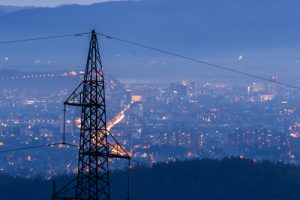
The ability of the electricity sector to respond to cybersecurity threats was the focus of the first House Energy and Commerce Subcommittee on Energy hearing convened by U.S. Rep. Fred Upton (R-MI) on Wednesday.
Upton, the chairman of the committee, was updated by electricity sector experts on steps being taken to address current and future cyber threats to the nation’s electricity grid.
“News reports bombard us almost daily about malware infections and portrayals of the harm from cyber attacks,” Upton said. “It is unquestionable that ensuring the reliable supply of electricity is absolutely vital to our nation’s security, economy, our health and welfare.”
The hearing explored information sharing capabilities and new authorities granted under the Fixing America’s Surface Transportation (FAST) Act to address electricity grid emergencies and foster voluntary infrastructure information sharing between private sector owners and the federal government.
“In my home state of Michigan and across the country, electricity enables telecommunications, financial transactions, the transport and delivery of energy and food,” Upton said. “Cyber threats to reliability deserve our constant examination.”
U.S. Rep. Greg Walden (R-OR), the chairman of the House Energy and Commerce Committee, said the reliable supply of energy is “an essential part of almost everything we do,” and even short periods of outages can have expensive and life-threatening consequences.
“Unfortunately, cyber threats in this sector are unavoidable and growing,” Walden said. “This hearing laid the groundwork for closer scrutiny of the relevant policies necessary to ensure future reliability in an evolving electricity sector.”
A major cyberattack in recent years highlights the urgency in securing the nation’s electric system. The December 2015 cyberattack on the Ukrainian power grid resulted in power outages that lasted for hours and impacted more than 225,000 customers.
Scott Aaronson, the executive director of security and business continuity at the Edison Electric Institute, testified about the importance of adapting to new and changing threats.
“Security cannot be static; threats evolve and so must we,” Aaronson said. The electric sector embraces that fact as demonstrated by the ongoing development of regulatory standards, the high-level partnerships developed under the Electricity Subsector Coordinating Council and the focus on constantly improving preparedness by applying lessons learned from exercises and real-world events.



